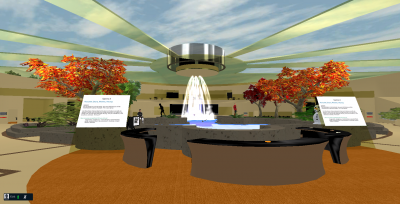By Jordanna Tennebaum, TLS freelance writer
Native Spanish and Russian speakers across the country will have the unique opportunity to formally study their respective languages through four new online courses at Carleton next fall.
By placing emphasis on students familiar with Spanish and Russian linguistics, often the product of childhood upbringings or birthplaces, Carleton’s School of Linguistics and Language Studies (SLaLS) is redirecting the focus of typical language classes. While the majority of programs concentrate almost exclusively upon those with little to no understanding of languages, Carleton’s heritage speakers series is geared towards students with medium to advanced knowledge of their mother tongues.
Professor Ioana Dimitriu will be teaching SPAN 4015 and SPAN 4025, or Spanish for Heritage Speakers I and II. She says she’s eager to teach those who have achieved a high level of verbal competency, a proficiency that usually prohibits registration in conventional Spanish courses.
“A number of students are turned back from registering into the lower-level Spanish classes every semester. Their placement tests show that their level is too high for enrolling in a standard language course,” says Dimitriu.
On the Russian front, this issue affects approximately five to 10 students each year who are flagged as too advanced. This often disadvantages heritage speakers who, though literally well versed in the basics, lack comprehension of academic terms or concepts.
SLaLS professor Iryna Kozlova is aware of gaps in expertise that frequently characterize members of Russian communities who may be comfortable with the ethnic alphabet without being able to read or write.
“These speakers have never been extensively educated in the language…some are children of immigrants. They may have only finished elementary school,” she says.
Kozlova will be running RUSS 3015 and 3025: Russian for Heritage Speakers I and II, which, along with the Spanish courses, will make use of virtual tools to enhance vocabularies, oral communication and proper grammar.
EDC educational technology development coordinator, Kirk Davies, is overseeing the design of these courses. By way of quizzes, ePortfolios and a 3D environment simulating Carleton’s campus, Davies is confident that students will benefit from the multifaceted system.
 “This is an authentic way to learn the language. There is less intimidation,” says Davies. “Sometimes when you’re looking at someone, you can intimidate them. But this environment will have avatars instead. Students won’t be intimidated to use the language.”
“This is an authentic way to learn the language. There is less intimidation,” says Davies. “Sometimes when you’re looking at someone, you can intimidate them. But this environment will have avatars instead. Students won’t be intimidated to use the language.”
In addition to minimizing a potential sense of intimidation, the online format will also accommodate a wider pool of registrants. Rather than offering the courses to Carleton students only, Dimitriu and Kozlova are calling upon anyone with substantial exposure to the languages.
Even with registration not yet open for the Fall 2015 and Winter 2016 terms, Kozlova has already received a great deal of interest in her courses. Carleton political science student Daria Kazhdan is among this group of Russian speakers. She is intent on learning more about the words she was introduced to at a young age.
“I only know how speak and read Russian. My writing skills are non-existent. So I would really like to learn how to send letters to my grandparents. I know it will be useful later on,” says Kazhdan.
For first year Carleton criminal justice student Polina Tsyban, this course will not only develop her writing skills, but also her relationship with her own ethnicity that she holds in high regard. Since moving to Canada from Kazakhstan in 2005, Tsyban has tried to maintain a balance between her usage of Russian and English.
“It’s important to preserve our language and our heritage…it’s important for me to be really fluent in my language and to not forget it,” says Tsyban.
The heritage courses will also help Tsyban connect with her cultural roots through reading and writing assignments that highlight events related to family, friends and holidays.
Running alongside the engaging content will be a flexible learning environment stemming from the online setup. Davies is convinced that by eliminating the need to physically attend class, virtual academic structures accommodate busy schedules.
“This opens up doors for a lot of people. If you have other commitments, it gives students more flexibility. They don’t have to be fixed to a certain time and place, so there’s a lot more freedom,” says Davies.
Of course, this freedom comes with the need for self-motivation, which, luckily for Dimitriu and Kozlova, is often the case with enthusiastic heritage language speakers.